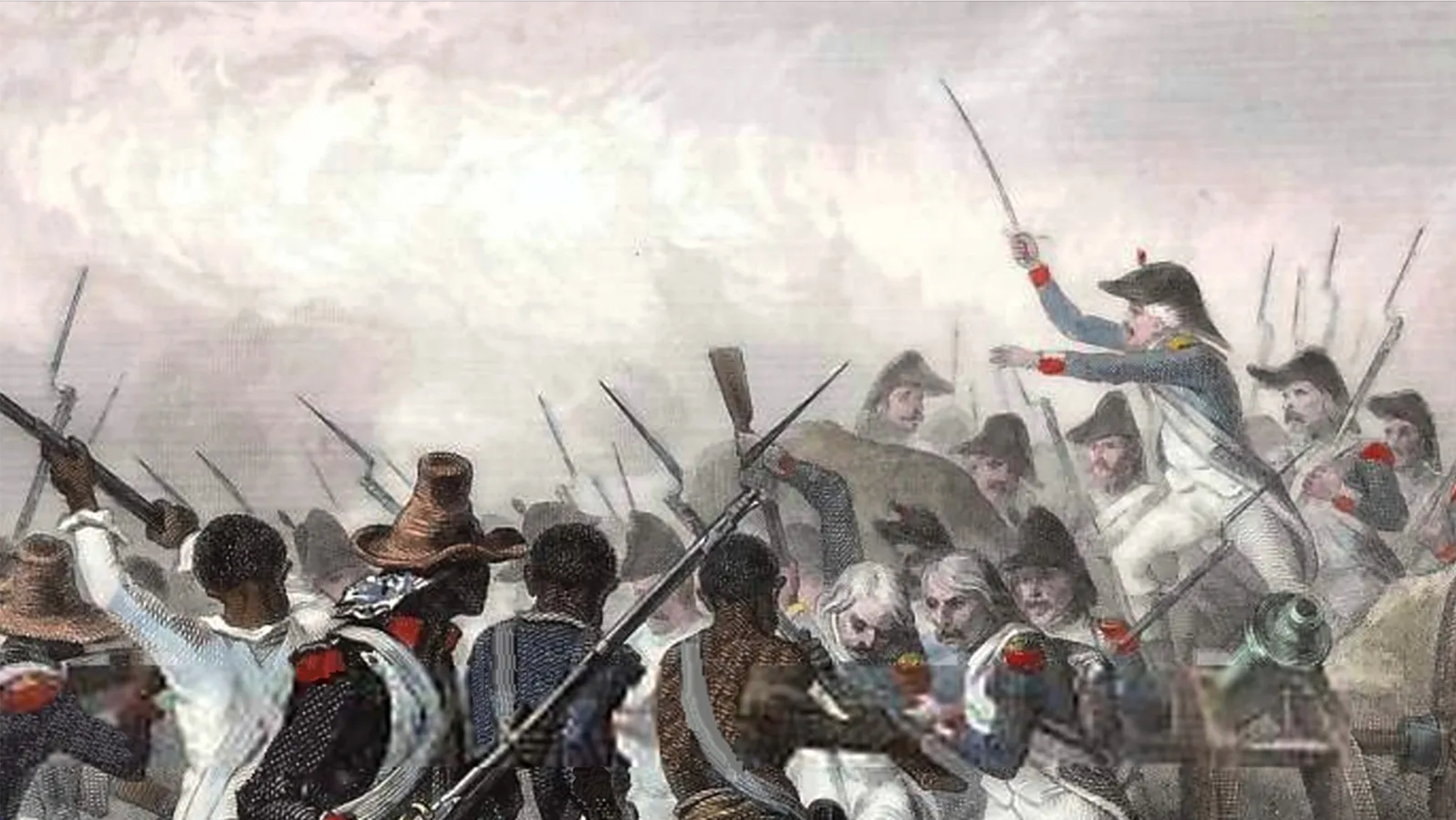Disclaimer: The views and opinions expressed by the author(s) do not represent the official position of Barbados TODAY.
“Study the historian before you begin to study the facts.” – Edward Hallett Carr, British historian (1892-1982)
“History gives answers only to those who know how to ask questions.” – Hajo Holborn, German-American historian (1902-1969)
“A generation which ignores history has no past and no future.” – Robert Heinlein, American author (1907-1988)
“History is a vast early warning system.” – Norman Cousins, American journalist (1915-1990)
“Those who do not remember the past are condemned to repeat it.” – George Santayana, American philosopher (1863-1952)
By Peter Webster
My good friend, who was born the day the German warship, the Bismarck, was sunk and promptly nicknamed “Bis”, recently riled my suspicious inquisitiveness by querying why the Haitians were forced to pay the French so much for their freedom even though the Haitian rebels had defeated the French forces in Haiti. Our local “twistorians”, like they have done with Cuba, have always conveniently started Haiti’s history with this imposition, which they have concluded is the reason for Haiti’s social and economic failure. However, the root of Haiti’s social and economic failures, which are intricately linked, starts before that.
The western portion of the island of “Hispaniola” was ceded to France in 1697 and was subsequently named “Saint-Domingue”. French colonists established lucrative sugarcane plantations, worked by vast numbers of slaves brought from Africa, which made the colony one of the richest in the world, even richer than Barbados at the time, which is now difficult (in the long distant past) to believe. Can you imagine Haiti of all places being so rich and now being so poor? Like Zimbabwe, Venezuela et al.?
In the midst of the French Revolution (1789-99), slaves, maroons, and free people of color launched the Haitian Revolution (1791-1804), led by a former slave and the first black general of the French Army, Toussaint Louverture. The French managed to capture Louverture, transporting him to France for trial. He was imprisoned at Fort de Joux, where he died in 1803 of exposure and possibly tuberculosis.
Following the loss of Louverture, the slaves, along with their allies, the Maroons and the free people of color, continued their fight for independence, led by generals Jean-Jacques Dessalines, Alexandre Pétion and Henri Christophe.
After 12 years of conflict, Napoleon Bonaparte‘s forces were defeated by Louverture’s successor, Jean-Jacques Dessalines (later Emperor Jacques I), who declared Haiti’s sovereignty on January 1, 1804: the first independent nation of Latin America and the Caribbean; the second republic in the Americas; the first country in the Americas, and possibly the world, to eliminate slavery; and the only state in history to be established by a successful slave revolt.
The first socially and economically significant thing to happen, during Haiti’s rebellion against France, was fighting between Louverture’s forces and their own allies, the free people of color, led by André Rigaud in the War of the Knives (1799-1800). Many of the latter were killed and more than 25, 000 surviving free people of color were forced to flee Haiti as refugees, mainly ending up in Louisiana, the nearest French colony at the time.
Do we need to be reminded that their descendants are now so much better off for it or that the current wave of Haitian refugees is not the first time that Haitians have been forced to flee their own country?
Dessalines (Emperor Jacques I) at first offered protection to the white planters and others. However, once in power, he ordered the massacre of the remaining white men, women, children, so that between January and April 1804, 3, 000 to 5, 000 whites, all French, were killed, including those who had been friendly and sympathetic to the black population. Subsequently, the few surviving whites fled the country first to Cuba, but then onto Louisiana.
Such horrible action is usually the result of hate. Mugabe did much the same thing as Dessalines and Zimbabwe is now one of the poorest countries in Africa after being one of the “better off”. Yet our hate-filled “twistorians” still fail to see the link.
Recently, one of them, when commenting on the fact Barbadian whites were being emotionally pressured by “Black” Barbados to “sell out” (Barbados Mutual Life Insurance; Brydens; Stokes & Bynoe; BS&T; Banks; McEnearny; SOL; Simpson Motors; et al.) said “good riddance”. Such emotional pressure may be “better” than being massacred, but given Barbados’ current economic situation with many unemployed and children going to sleep hungry, how can we conclude other than that “where hate is bliss, love cannot exist and comes with a price tag!” Haiti has paid a great price and is still paying like Zimbabwe, Cuba and Venezuela.
Round and round we go… like a top spinning in mud!
Peter Webster is a retired Portfolio Manager of the Caribbean Development Bank and a former Senior Agricultural Officer in the Ministry of Agriculture.




